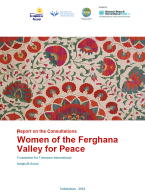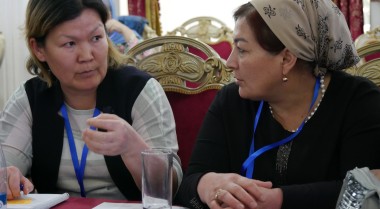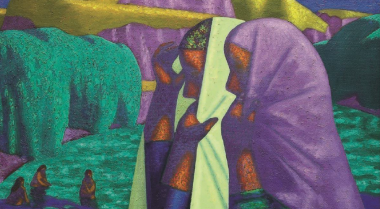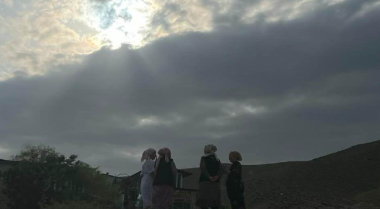
Unlocking the Potential for Sustainable Peace in the Ferghana Valley: Women’s Crucial Role in Peace and Conflict Recovery Efforts in Uzbekistan
This country report sheds light on the essential role of women in peacebuilding and conflict recovery in Uzbekistan’s Ferghana Valley. Between 1991 and 2023, security fluctuations—particularly involving Tajikistan and Kyrgyzstan—restricted cross-border mobility, significantly affecting women with family ties on both sides. Since 2016, improved relations and open borders due to the de-escalation of tensions have enabled women to play a key role in peacebuilding, despite ongoing challenges such as patriarchal norms.
This report, based on consultations with over 300 participants and led by Istiqbolli Avlod (IA) in partnership with the Foundation for Tolerance International (FTI), offers evidence-based recommendations to advance women’s meaningful participation and leadership in peace efforts. It is part of a series covering three country reports on Kyrgyzstan, Tajikistan, and Uzbekistan, as well as a regional policy brief.
Despite efforts to improve gender equality, women in border regions continue to face obstacles that hinder their full and active engagement in peace processes. The report emphasises the need for sustained investment in women's participation and overcoming barriers to their involvement in decision-making.
Key recommendations to strengthen women’s roles in peacebuilding include:
- Promote women’s participation in public life at national and local levels by supporting women's political candidates, organising awareness campaigns, and creating programmes for young women in self-governance to foster a multigenerational approach to leadership.
- Strengthen the social infrastructure of villages, including new kindergartens, youth centres, and training hubs to reduce women’s care workload and encourage community engagement.
- Address violence against women, including domestic violence, through awareness-raising and economic empowerment programs. Specific support should be provided to the wives of labour migrants, including economic and psychosocial support.
By advancing these recommendations, the report calls on the Uzbek government, local authorities, and international partners to ensure that women’s contributions to peacebuilding are recognised and supported, fostering a more inclusive peacebuilding landscape in the Ferghana Valley.
These reports are a product of the project Women of the Ferghana Valley Contribute to Conflict Resolution led by the Foundation for Tolerance International (FTI) in partnership with GPPAC and funded by the Rapid Response Window of the Women’s Peace and Humanitarian Fund. They serve as key resources for the project by providing evidence-based insights, documenting women’s unique challenges in conflict-affected regions, and offering actionable recommendations to strengthen women’s roles in peacebuilding and conflict recovery.



